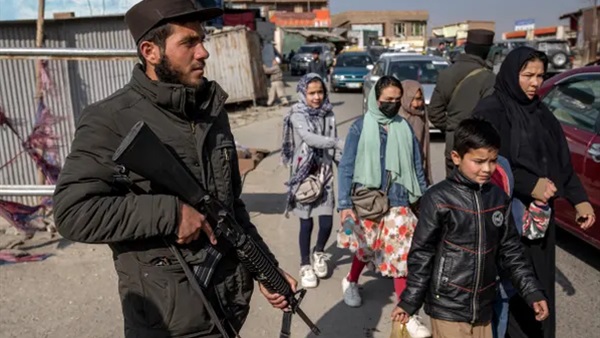Afghan aid at risk from Taliban ban on women, warns United Nations

The UN’s lead humanitarian coordinator has said UN-supplied
aid cannot continue if the Taliban do not lift their ban on women working for
humanitarian aid agencies in Afghanistan.
Martin Griffiths, the head of the UN’s Office for the
Coordination of Humanitarian Affairs, is due to visit Kabul shortly to discuss
the impasse.
Although he said he did not want to pre-empt talks and was
willing to examine workarounds on the ban, his remarks suggest a standoff is
developing between the UN and the Taliban that could lead to billions in aid
being cut off in the long term.
There are already reports that hundreds of children are
turning up at hospitals with pneumonia during the harsh winter. As many as 150
NGOs and aid agencies have suspended all or part of their work due to the ban.
The UN as an organisation is not yet subject to the same ban on women working,
but much of its aid programme is delivered by NGOs.
Griffiths said UN flights carrying cash for humanitarian aid
into Kabul had already been suspended pending a pause in the Taliban ban. The
aid is supplied in cash due to US sanctions.
Griffiths told the BBC: “Without women working, we can’t
deliver for the people who are in fact the primary objects of humanitarian
assistance for women and girls. So it’s a practical matter. It’s beyond rights.
It’s also practical”.
He added: “There’s a lot of experience in Afghanistan, even
today, where there is an edict, but it’s not enforced in a consistent way in
different parts of the country. There are parts of the country now where women
can work. So we will be doing everything we can to work around and make things
work. I don’t want to speculate at this point as to what happens if the edict
isn’t universally [enforced], but I have to say, I can’t see how we would
continue.
“We will do everything we can to be able to remain and stay
and deliver. These are particularly difficult circumstances, I can’t remember a
place where we have faced such a series of impediments. But humanitarians spend
their lives negotiating, as well as delivering.”
He continued: “We’re there for 28 million people in Afghanistan.
It’s the largest humanitarian aid programme in the world and so it’s a body
blow against our capacity to deliver.”
The ban was imposed on women working in NGOs three weeks ago
after the Taliban based in Kandahar said there was evidence the hijab was not
being strictly enforced.
There have been signs that some ministries did not agree
with the ban, but experience since August 2021 when the Taliban retook control
of the country is that hardline Pashtuns based in Kandahar ultimately hold
sway, leaving other Taliban members to explain and implement their decisions.
Many aid agencies are testing whether the ban is being imposed in practice in
local communities, especially in the health sector.
Griffiths also sought to refute “unhelpful calumnies” that
UN humanitarian aid is being subverted by the Taliban setting up bogus aid
agencies that then siphon off aid for Taliban use.
Griffiths said “the money is numbered and tagged and used
for the purposes for which it is given. It is used by humanitarian agencies by
the UN system. It isn’t somehow leaked to the street. So yes, funds go in. But
they’re very tightly controlled.
“I wouldn’t agree with the notion that the Taliban is
relying on international funding for its survival. Taliban is raising money through
taxes, through all kinds of sources and its administration of Afghanistan. I
don’t think the UN system is that banker”.
Afghanistan’s deputy prime minister Mawlavi Abdul Kabir
continued to send out mixed signals about the ban, telling the secretary
general’s deputy special representative for Afghanistan, Markus Potzel, in a
fresh meeting that learning religious and modern sciences was the right of
every Afghan, including women. He said the government was still working on the
details of how women could be educated.
The UN security council is expected to discuss the NGO
crisis at a closed-door meeting sought by Japan and the United Arab Emirates on
13 January before Griffiths’ departure to Afghanistan.









